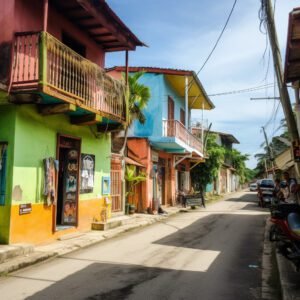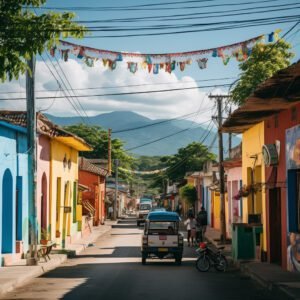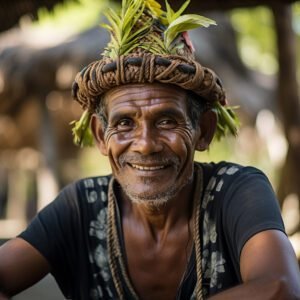Introduction
Traveling to a new country can be an exciting adventure, but it’s important to remember that each culture has its own set of rules and cultural norms that should be respected. Understanding and following these rules not only helps you stay on the right side of the law, but it also shows respect for the local culture. In this article, we will explore some key elements of the rules and cultural norms in Madagascar, providing you with tips for a smooth and respectful journey.
Key Elements
Element 1: Greetings and Etiquette
Malagasy people take great pride in their culture and traditions, and a simple act of greeting can go a long way in building rapport. When meeting someone for the first time, it is customary to shake hands and maintain eye contact. However, it is important to note that in some rural areas, people might prefer a more traditional greeting, such as touching foreheads and clasping hands together.
Element 2: Language
The official languages of Madagascar are Malagasy and French. While most locals in urban areas can understand and speak basic English, it is always appreciated to learn a few phrases in Malagasy or French. This effort shows respect for the culture and will likely be met with smiles and warm hospitality.
Element 3: Dress Code
When visiting religious sites or rural areas, it is essential to dress modestly out of respect for local customs. Both men and women should avoid wearing revealing clothing, such as shorts, tank tops, or sleeveless shirts. Instead, opt for lightweight, breathable clothing that covers the shoulders and knees. It is also a good idea to bring a scarf or shawl to drape over your shoulders if needed.
Element 4: Conservation and Environmental Awareness
Madagascar is known for its unique biodiversity, and protecting the environment is a top priority for the country. It is essential for visitors to respect and follow conservation rules, including not disturbing or removing any flora or fauna from protected areas. Additionally, waste should be properly disposed of in designated bins or facilities to reduce the impact on the natural surroundings.
Element 5: Customs and Taboos
Madagascar has a rich cultural heritage, and certain customs and taboos hold deep significance. For example, it is considered disrespectful to point at someone using your index finger. Instead, use an open hand or gesture with your chin. Additionally, it is advisable to refrain from taking photographs of people without their permission, as this can be seen as invasive.
Element 6: Unique Laws
Madagascar has specific laws that visitors should be aware of. For instance, it is illegal to bring any type of military item into the country, including camouflage clothing. It is also important to note that homosexuality is illegal in Madagascar, and same-sex relationships are not widely accepted. Visitors should exercise discretion and avoid displaying affection in public.
Tips for Traveling
Now that we’ve explored some key elements of the rules and cultural norms in Madagascar, here are a few practical tips to keep in mind when planning your trip:
- Research and Plan Ahead: Before traveling to Madagascar, take the time to research the country, its customs, and any specific rules or regulations that may apply to your visit. This will help you navigate the cultural landscape with confidence and avoid any unintentional missteps.
Respect Local Traditions: Be respectful of local customs and traditions. Take the time to learn about the cultural heritage of the places you visit and adapt your behavior accordingly. This includes being mindful of dress codes, greeting customs, and social norms.
Learn Basic Phrases: Learning a few basic phrases in Malagasy or French can go a long way in connecting with the local people. Simple greetings, thank-you phrases, and polite expressions will be appreciated and help to break the ice.
Be Mindful of the Environment: Madagascar is home to unique ecosystems and endangered species. Respect nature and adhere to conservation guidelines by not littering and avoiding any activities that may harm the environment.
Be Open-minded and Flexible: Traveling is an opportunity to broaden your horizons and experience new cultures. Embrace the differences you encounter, remain open-minded, and be willing to adapt your expectations and plans as needed.
Disclaimer: This article aims to provide valuable insights into the rules and cultural norms of Madagascar. However, it is advisable to seek professional advice and consult official sources to ensure accurate and up-to-date information before visiting the country.
Traveling to Madagascar can be a truly unforgettable experience, but it’s essential to approach it with respect for the local culture and customs. By understanding and following the rules and cultural norms, you not only ensure a smooth journey but also contribute to positive interactions and mutual understanding. So pack your bags, embrace the adventure, and get ready to immerse yourself in the vibrant culture of Madagascar!


